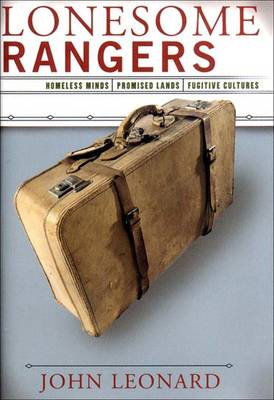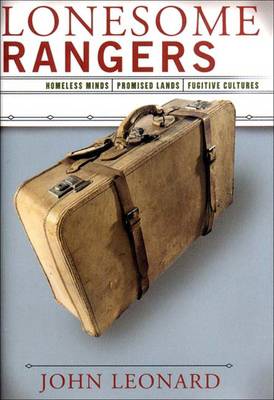
- Retrait gratuit dans votre magasin Club
- 7.000.000 titres dans notre catalogue
- Payer en toute sécurité
- Toujours un magasin près de chez vous
- Retrait gratuit dans votre magasin Club
- 7.000.0000 titres dans notre catalogue
- Payer en toute sécurité
- Toujours un magasin près de chez vous
Lonesome Rangers
Homeless Minds, Promised Lands, Fugitive Cultures
John LeonardDescription
John Leonard, "the fastest wit in the East" (The New York Times Book Review), is back with the offbeat, wide-ranging style that earned his last book, When the Kissing Had to Stop, a place among the Voice Literary Supplement's "25 Favorites of 1999." Now, with an eye to the social and political experience of writers, Leonard adopts a broad definition of exile.
He addresses Robert Putnam's Bowling Alone, where exile manifests itself in solitary bowling, a reflection of a declining sense of community. He considers Salman Rushdie as rock'n'roll Orpheus, who--after ten years in fatwa-enforced exile--bears a striking resemblance to his continually disappearing characters. And Leonard also explores Primo Levi's exile of survival, Bruce Chatwin's self-imposed exile in travel, as well as the work of Saul Bellow, Ralph Ellison, Phillip Roth, Barbara Kingsolver, and Don DeLillo, among others.
As always, Leonard's writing jumps off the page, engaging the reader in what the Washington Post calls his "laugh-out-loud magic with words."
Spécifications
Parties prenantes
- Auteur(s) :
- Editeur:
Contenu
- Nombre de pages :
- 352
- Langue:
- Anglais
Caractéristiques
- EAN:
- 9781565846944
- Date de parution :
- 01-02-02
- Format:
- Livre relié
- Format numérique:
- Genaaid
- Dimensions :
- 147 mm x 213 mm
- Poids :
- 512 g

Les avis
Nous publions uniquement les avis qui respectent les conditions requises. Consultez nos conditions pour les avis.






